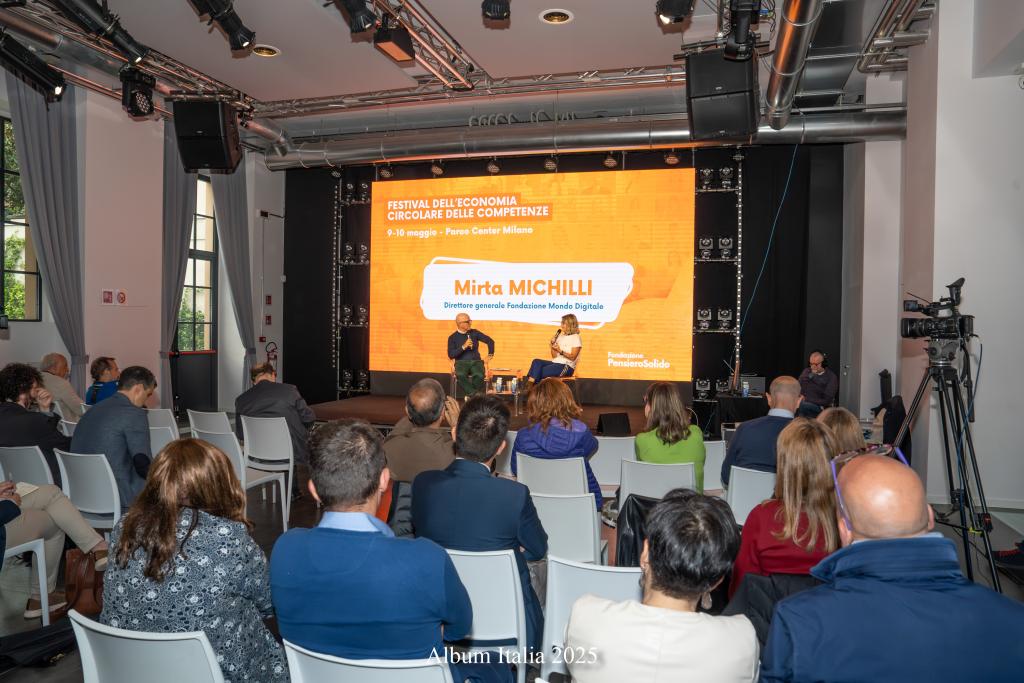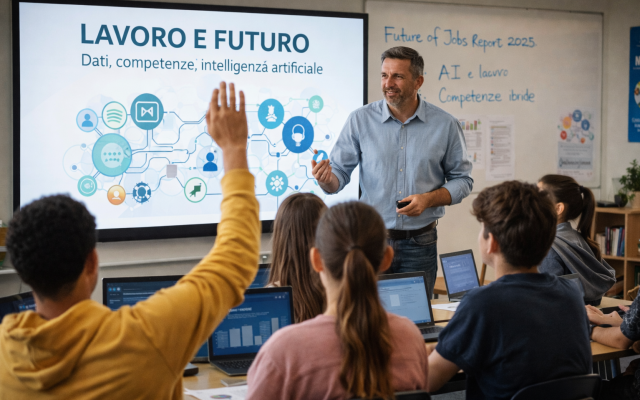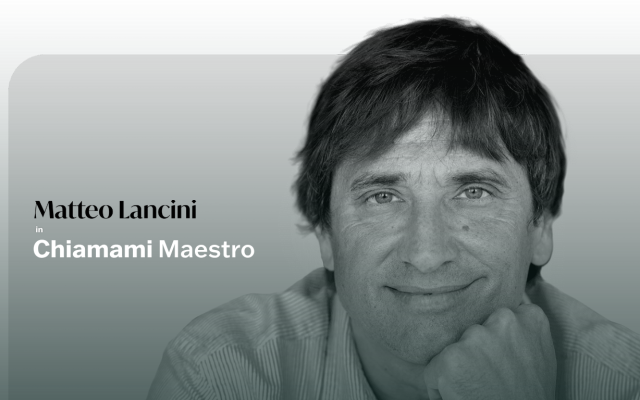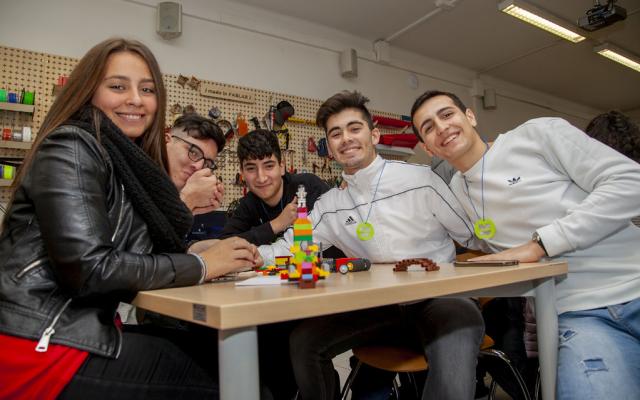Mirta Michilli talks about the vision and commitment of the Fondazione Mondo Digitale
During the first Festival of the Circular Economy of Skills, organised by the Fondazione Pensiero Solido in Milan (9-10 May 2025), the Director General of the Fondazione Mondo Digitale, Mirta Michilli, retraced the fundamental stages of almost 25 years of activity. Starting from the legacy of Tullio De Mauro and the concept of a ‘democratic knowledge society’, Michilli highlighted the urgent need for widespread training that values the circularity of skills and the active involvement of schools, businesses and communities. An educational model that connects generations and territories and aims to bridge the gap between technological innovation and social cohesion.
We are sharing the interview with our community as a contribution to a broader debate on education for life in the 21st century, in order to continue building a more equitable, competent and supportive future together.
Moderator: Fondazione Mondo Digitale is approaching its first quarter century. Can you tell us what the Foundation is, what it does and what it does today?
Mirta Michilli: We were founded in 2001. Our long-standing president, Tullio De Mauro, used to say that we deal with the Democratic Knowledge Society. For us, this means working to ensure that knowledge, especially that linked to technology and innovation, is accessible to all. From young people to the most vulnerable sections of the population, our goal is to guarantee equal opportunities in technological development.
Moderator: What was the context in which the Foundation was established and what were its first activities?
Mirta Michilli: We were founded at a time when Rome was building its digital infrastructure. From the outset, we proposed programmes to give as many citizens as possible access to technology. Since then, our mission has remained consistent, but the focus has changed: today, everyone knows that technological development means well-being and competitiveness.
Moderator: What are the main challenges today compared to 25 years ago?
Mirta Michilli: We live in a country where 99% of companies are small or micro-enterprises. The challenge is to equip them with advanced technological skills, such as those related to artificial intelligence. The education system must also train professionals and talents who are ready for these challenges.
Moderator: How do you address the issue of training and skills?
Mirta Michilli: Our model, designed by Prof. Alfonso Molina, is called ‘Education for Life in the 21st Century’. It is applied in all our projects. We believe in the circularity of skills: adults train young people, but young people also teach technology to older people, for example.
Moderator: Can you give a concrete example of this circularity of skills?
Mirta Michilli: Since 2003, we have been running ‘Grandparents on the Internet’, where students teach older people how to use technology, who in turn offer their experience and life skills. Technology has changed; today we talk about artificial intelligence, but the spirit is the same.
Moderator: What about volunteering and business involvement?
Mirta Michilli: All our projects involve corporate volunteering. Managers, researchers and university professors donate their time and skills to our educational programmes, also with a view to role modelling, especially for women.
Moderator: What would you need to do more, also in view of the Foundation's 25th anniversary?
Mirta Michilli: We have found great interest from businesses, schools and universities. Less so from institutions, which are too often absent. The third sector is lively but fragmented. A strategic commitment from institutions is needed to create a system and develop opportunities in the local areas.
Moderator: Can you tell us about the Innovation Gyms project?
Mirta Michilli: We have created these spaces in 12 Italian cities, including Milan, with the sole support of private individuals. They are places with advanced technologies open to schools, families and communities. The problem is the difficulty of finding stable public funding to maintain them.
Moderator: How can we work together to strengthen these initiatives?
Mirta Michilli: I am a woman of action. It is important to meet, but bonds are strengthened by doing things together. I would like to define a concrete project for a specific area.





